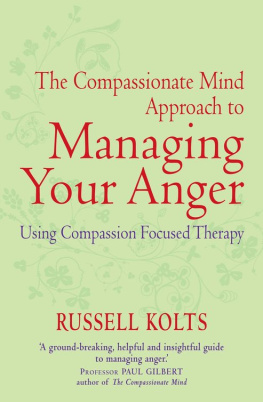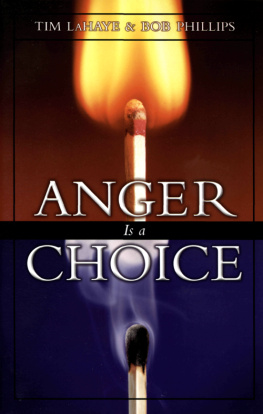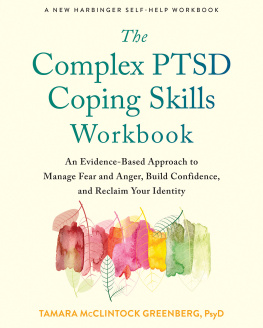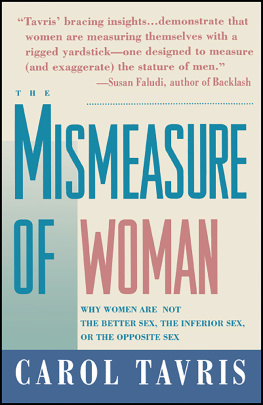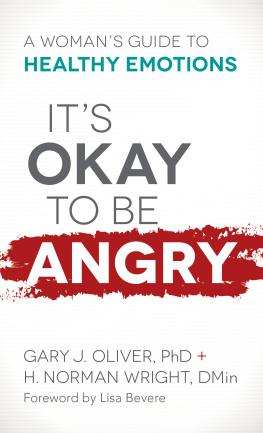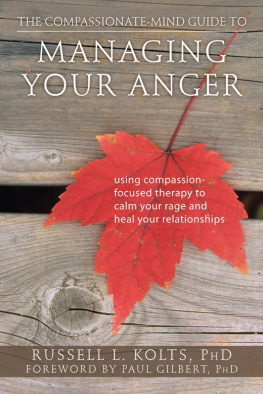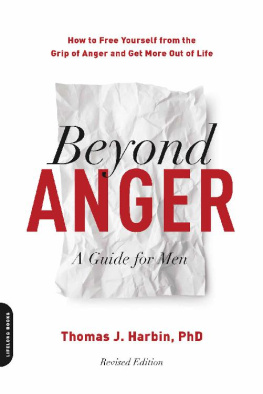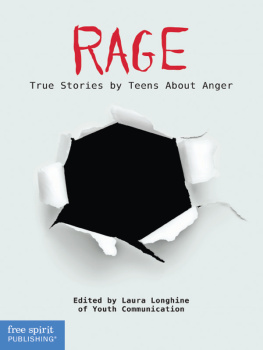This book is dedicated to the men of Airway Heights Corrections Center, who dare to cultivate compassion behind bars.
And to Lisa Koch and Dylan Kolts. My heart lives with you.
We have always understood that compassion is very important for our well-being. If you are stressed or upset, it is always better to have kind, helpful and supportive people around you rather than critical, rejecting or disinterested folk. However, it is not only this common sense that tells us about the value of kindness and compassion recent advances in scientific studies of compassion and kindness have greatly advanced our understanding of how compassionate qualities of the mind really do influence our brains, bodies and social relationships, as well as affecting our health and well-being. Yet, despite this common sense, ancient wisdom and modern knowledge, we live in an age that can make compassion for ourselves and for others difficult. This is the world of seeking the competitive edge, of achievement and desire, of comparison to others who may be doing better, dissatisfaction, self-disappointment and self-criticism. Research has now revealed that such environments actually make us unhappy, and that mental ill-health is on the increase, especially in younger people. As Dr Russell Kolts helps us to understand, frustration, irritability and anger are very common symptoms of the environments we are living in today. Be it irritation with long queues, overly complex gadgets we cant work out how to use, traffic jams, whining children or what we see as incompetent politicians the list of things that wind us up is endless.
If feeling angry or irritable and stressed is not enough, we can act on these emotions and then justify ourselves: They had it coming to them; they should not have done X or Y. And, of course, we label the people we are angry with as dumb, stupid, a pain or thoughtless and unfeeling. There can also be subtle messages in society that anger is about being macho a no-nonsense person. In fact, that kind of attitude can lie behind quite serious violence where people feel they have a need to save face, get their own back, and not be humiliated or disrespected. In some sectors of society, the fear of humiliation is so profound that explosive anger and violence are part of everyday life.
In fact, it is easy to confuse aggressiveness with assertiveness and, when we do so, we can cause much hurt and upset to others. As Dr Kolts points out, anger is a volatile, impulsive and not very clever emotion. If we just go with its flow, we can regret acting on it in the days, weeks or years to come. Anger also has a habit of being quite sticky in the sense that we tend to ruminate about the things that made us angry we go over and over them in our minds. We dont stop to think what that process might be doing to our heads and bodies. For some people, feelings of anger can be quite frightening, and so they seek to suppress their emotions in order to avoid conflict. Others can become self-critical and judge themselves for becoming angry or irritable and not being nice or lovable people. So were critical of ourselves and we think that by being angry with ourselves we will stop being angry! Indeed, our society has a habit of blaming and shaming if we seem to be struggling with our emotions.
So why are we so susceptible to frustration and anger and why are they on the increase in modern-day society? Dr Kolts uses his wealth of knowledge and experience to guide our understanding and to help us recognise that, actually, many of our emotions are the result of a very long evolutionary history. Our emotions were really designed to deal with immediate threats in the jungles and savannas of our environment, and are not so well-adapted for the modern world. Nor do they do so well when our angry minds use our new brains and capacity for thinking and rumination, locking us into anger. Humans are the only animals that have the capacity to sit under a tree ruminating about how to get their own back, or how angry they are because of some event or other, planning vengeance, or just keeping themselves in an angry state. We can even be angry about what we feel angry about feeling anxious, angry because we feel depressed, angry because we feel tired all the time; angry because we are just exhausted. So the way we think about and ruminate about the stresses in our lives can at times really do our heads in. Understanding this, and being able to stand back from our emotions, allows us to see that our vulnerability to anger is not our fault at all. After all, we didnt design our brains with their capacity for emotions like anxiety and anger. Nor did we design our capacity for complex thinking which can actually make our experience of anger and frustration all the more intense. And nor did we choose our backgrounds or our genes, both of which can make us more susceptible to anger. This is a very important message in Compassionate Mind Training and Compassion Focused Therapy because compassion begins with developing a deep understanding of just how tricky our brains are and a recognition that they are not that well put together! That is quite a strange message, isnt it? But once we recognise how difficult our emotions can be, we can stand back from them and feel compassion for the difficulties we experience.
So, given that our brains have been designed by evolution and shaped by the environments we grew up and live in none of which we choose what can we do to help ourselves when we become angry? First, we can learn to pay attention to how our minds work and function, and become mindful and observant of the feelings that are associated with anger. In this helpful book, Dr Kolts shows how people have learned to be very sensitive to the situations that can trigger our anger such as frustrations and minor criticisms.
If we are to face anger and to really work with it then the relationship we have with ourselves is very important. If we are critical and harsh with ourselves, then our inner worlds are not comfortable places to inhabit. Feeling ashamed and being self-critical, self-condemning or even self-loathing , can undermine our confidence, making us feel worse. People who generally feel confident and like themselves are much less prone to anger than those who feel unsure about themselves, are easily victimised by others and are vulnerable to rejection.
In addition, of course, anger isnt just directed outwards, it can be directed inwards towards ourselves, and this really does cause difficulties . Sadly, many people today are self-critical and when things go wrong or they make mistakes, rather than trying to be helpful and supportive of themselves, they react by becoming frustrated and angry with themselves . This is not a good way to deal with anger because, as Dr Kolts outlines, we are actually adding more fuel to the fire of our threat system. In contrast, self-compassion is a way of being with ourselves and all our emotions, uncomfortable as they may be, without self-condemning and instead with support and encouragement. Research shows that the more compassionate we are towards ourselves, the happier we are, and the more resilient we become when faced with difficult events in our lives. In addition, we are better able to reach out to others for help, and feel more compassionate towards other people too.
Compassion can sometimes be viewed as being a bit soft or weak or letting your guard down and not trying hard enough. It is a major mistake to think of it in this way because, on the contrary, compassion requires us to be open to and tolerate our painful feelings, to face up to our own problematic emotions and difficulties. Sometimes its anger which hides us from more painful things and it is compassion that gives us the courage to face them. Compassion does not mean turning away from emotional difficulties or discomfort, or trying to get rid of them. It is

